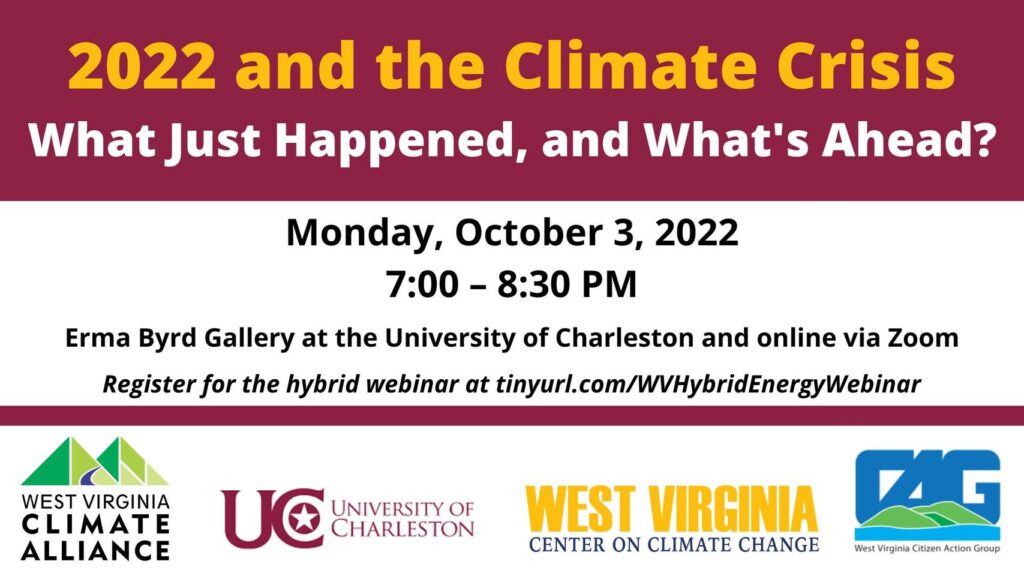Announcing a live Hybrid Webinar to be held on Monday, October 3, 2022 — in-person in Charleston, West Virginia, and online via Zoom.
Registration for in-person and online attendance is here.
us06web.zoom.us/webinar/register/WN_zMbsoy0sQymRVtN2TdMI4Q
Rising temperatures, extreme weather, and an accelerating energy transition are taking place around the globe.
In the United States, after years of debate, major national climate and energy legislation has finally been enacted.
What will this new legislation mean for the State of West Virginia, the United States of America, and the planet?
To address this question, on Monday, October 3, 2022, from 7:00 – 8:30 PM USET, the West Virginia Center on Climate Change (“WV3C”) — partnering with the West Virginia Citizen Action Group and the West Virginia Climate Alliance — will present a free, live, expert-led, audience-interactive “hybrid webinar” program.
The program will be hosted in-person at the Erma Byrd Gallery in Riggleman Hall at the University of Charleston, and online via Zoom. To attend in person or online, you must register on the zoom link above.
The main program speaker will be Christina DeConcini, Director of Government Affairs at the World Resources Institute, where she oversees WRI’s legislative work and strategy on climate change and energy issues.
Also speaking on the program panel will be John Barnette, Ed.D., Professor and Associate Dean and Executive Director of Leadership & Professional Development Programs at the University of Charleston; and others TBA.
PLEASE NOTE: the Erma Byrd Gallery will have room for about fifty general public in-person attendees who are not University of Charleston students, staff, or faculty. In-person seat reservation for non-UC-affiliated registrants will close when we reach that number, with a “waiting list” if more seats open up. Registration for online attendance will not be affected.
For more information, go to https://wvclimate.org. The Appalachian Stewardship Foundation and the Dunn Foundation helped make this program possible.

